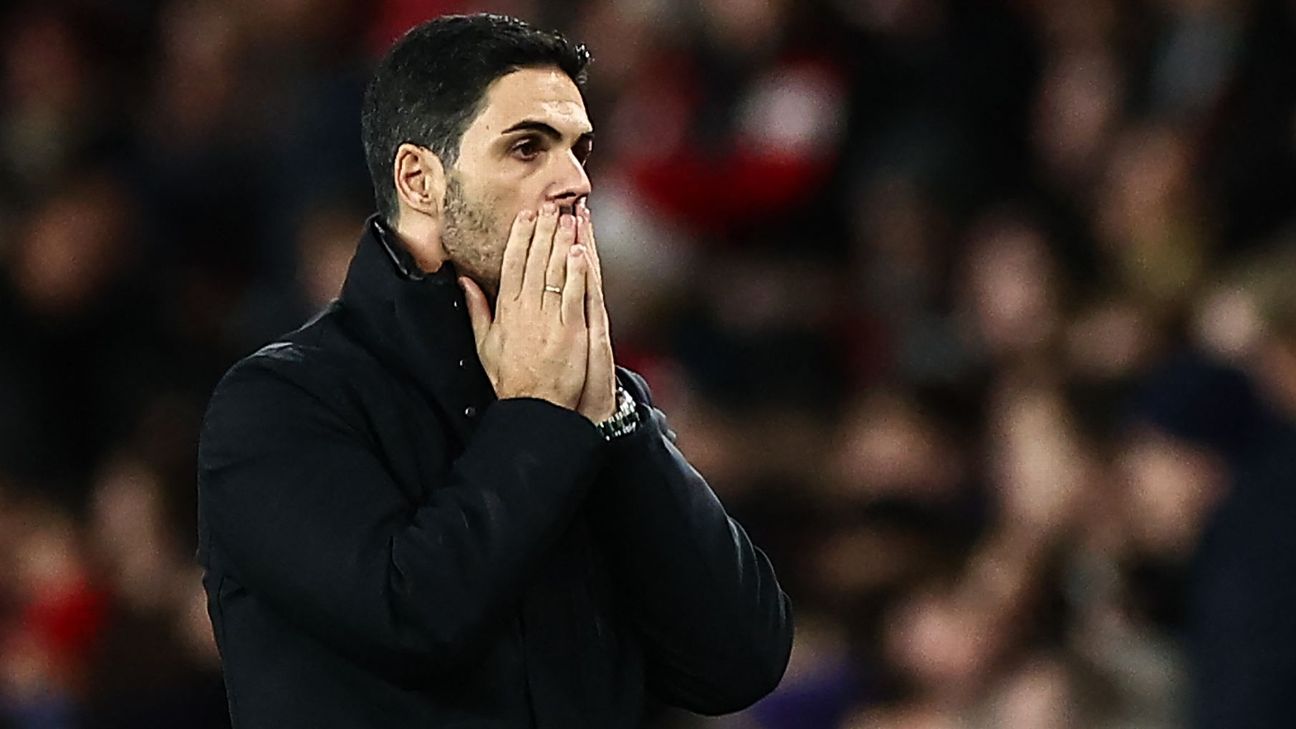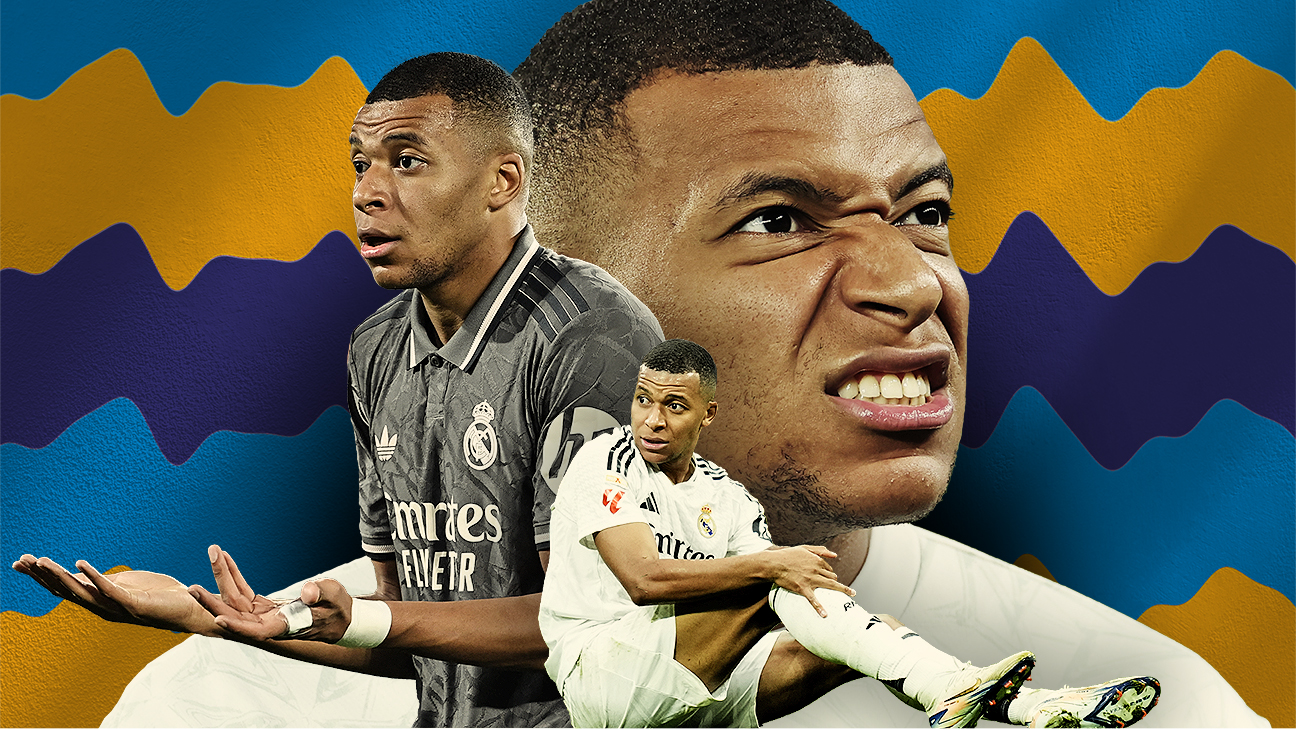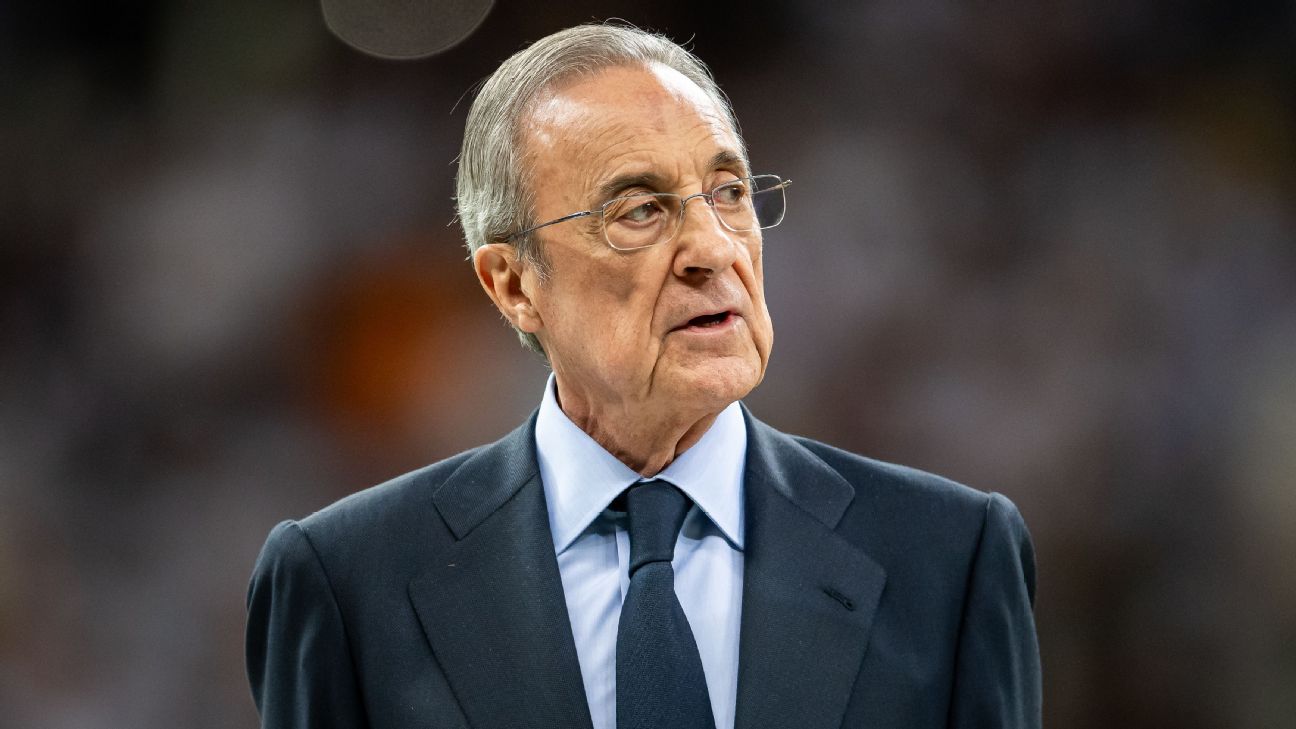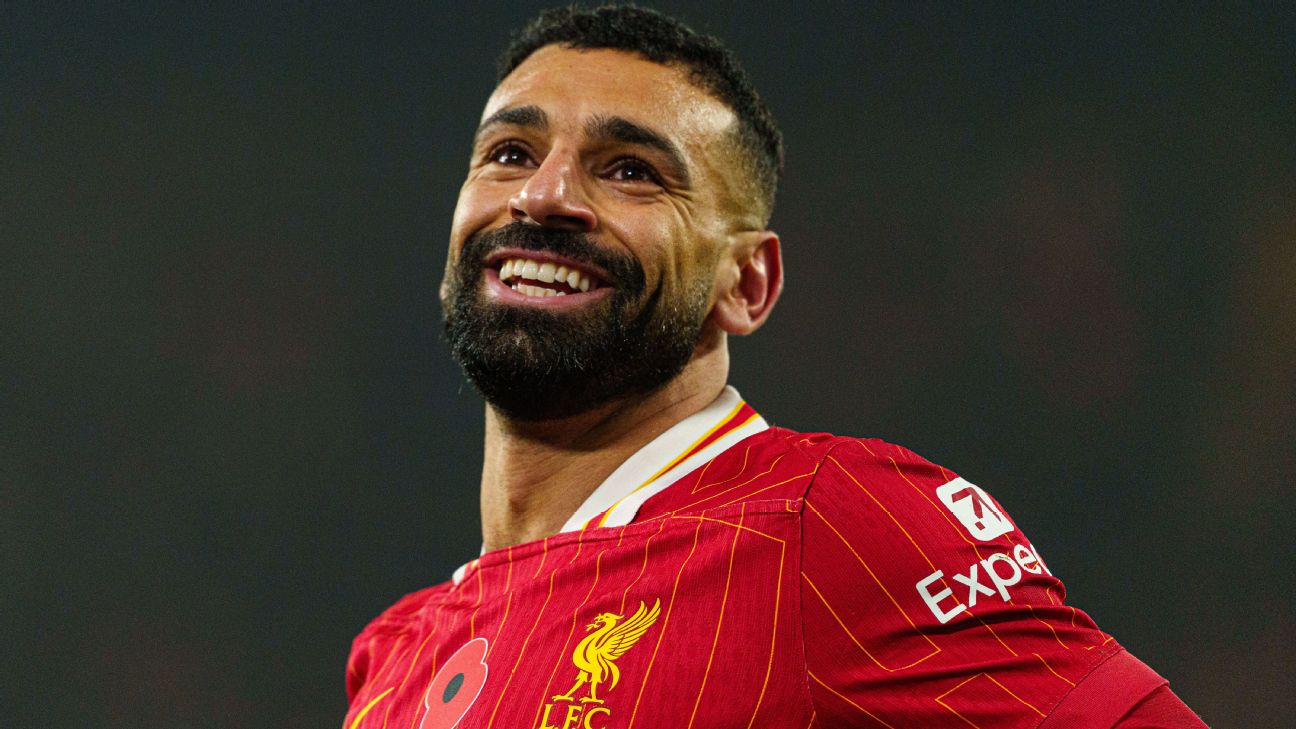Premier League managers can’t escape the spotlight when their team is struggling to live up to expectations. Just ask Chelsea’s Mauricio Pochettino or Manchester United’s Erik ten Hag. Yet when it comes to falling short this season, Arsenal’s Mikel Arteta is flying under the radar in comparison to his rivals at Stamford Bridge and Old Trafford.
When Arsenal face Crystal Palace at the Emirates on Saturday, they will do so with their title hopes resting on a win against Roy Hodgson’s team. It may only be mid-January, but the Gunners are already five points adrift of leaders Liverpool while champions Manchester City are three points clear of them in second spot. Having left themselves playing catch-up after taking just four points from their last five league games, anything but a win against Palace and Arsenal can forget about winning the title.
– Stream on ESPN+: LaLiga, Bundesliga, more (U.S.)
But it is not just a recent slump in form that has left Arsenal battling to stay in the title race. After 20 games this season, they are 10 points worse off than at the corresponding stage of last year’s campaign. It’s a slump shared by Manchester United, who have suffered far more criticism for their results. Only Newcastle United, who are 11 points behind their tally at this stage last season, have a worse record than Arsenal. Chelsea, despite their difficulties under Pochettino, are a point better off, while Tottenham Hotspur have banked an extra four points at this stage under Ange Postecoglou. City are two points worse off, while Liverpool are a remarkable 16 points ahead of where they were after the same number of games last term.
Arsenal have also scored fewer and conceded more goals (never a good combination.) A year ago, they had scored 45 and conceded 17, but they go into the Palace game this weekend with 37 scored and 20 conceded, so there are few positives for Arteta.
It is clear Arteta has made Arsenal relevant again since replacing Unai Emery as manager in December 2019. He has returned the club to the Champions League after a six-year absence and last season had the team in pole position to win a first title in two decades, until a loss of form in the final two months enabled Pep Guardiola’s City to overtake them en route to achieving a Premier League/FA Cup/Champions League treble.
There is a good argument to suggest Arsenal overachieved last season, having finished 24 points behind the champions in fifth a year earlier. But, while that may be the case, they are now failing to live up to expectations this time around and the blame for that lies with Arteta.
He is the one who decided to replace goalkeeper Aaron Ramsdale, an impressive performer last season, by signing David Raya on loan from Brentford. It was a stylistic decision, with Arteta wanting a goalkeeper more capable of playing out from the back, but Raya has made a series of mistakes that have injected uncertainty into the defence.
Arteta’s claim that neither would be No. 1 and that he would rotate the two keepers — he even said he would consider substituting them during games — has proven to be baseless; Ramsdale has made one Premier League appearance since being dropped in September (against Brentford, due to Raya being ineligible against his parent club.) Arteta made that key switch in goal without giving his defenders time to adjust to a significant change in philosophy and approach, and there has been little evidence to suggest the decision has made the team better.
And Arteta’s decision to sign forward Kai Havertz from Chelsea for £65 million, rather than recruit a proven goal scorer, looks more bewildering with every game as Arsenal continue to struggle for goals. Havertz is a good player, but his signing was an extravagance that Arsenal could not afford at this stage of their development. His best return for Chelsea during three seasons at Stamford Bridge was eight league goals in the 2021-22 season, and he has scored just four in 19 appearances for Arsenal. Bukayo Saka tops Arsenal’s scoring charts with just six league goals, and senior striker Gabriel Jesus has contributed just three from 15 appearances.
So the decision to sign Havertz rather than address a goal-scoring issue that had become evident last season was another bad choice by Arteta. After a summer in which the club spent so much money — £207m, including Raya’s £3m loan fee — they are unable to add to the squad this month due to a risk of breaching the Premier League’s profitability and sustainability regulations.
Like every other manager, Arteta will point to mitigating factors. Some carry more weight than others. Jurriën Timber, a £34.2m signing from Ajax, suffered a cruciate ligament injury in the opening game of the season and his absence has denied Arteta a reliable figure on the left side of defence. Thomas Partey’s prolonged spell on the sidelines due to injury has also left the team short in midfield, although it is no secret that Arteta was prepared to let him follow Granit Xhaka out of the door last summer had a club made a suitable offer for the former Atletico Madrid player.
Without Partey and Xhaka, Arteta has struggled to get the blend right in midfield, where £105m summer signing Declan Rice has been an outstanding addition. Rice has delivered, but Martin Ødegaard has been unable to reproduce his form from last season. Saka has played on despite the discomfort of an ongoing Achilles problem, while Gabriel Martinelli has scored just twice in 18 league games and Eddie Nketiah’s only league goals since August have all come in one match — the 5-0 thrashing of Sheffield United on Oct. 28, when he netted a hat trick.
Yet the issues in the midfield and shortage of goals from the forwards can be attributed to decisions made by Arteta in the summer, particularly in terms of signing Havertz.
Many of Arteta’s problems have been created by himself and, if results continue to slide, he will have to brace himself for the kind of scrutiny that Pochettino and Ten Hag have endured all season.



